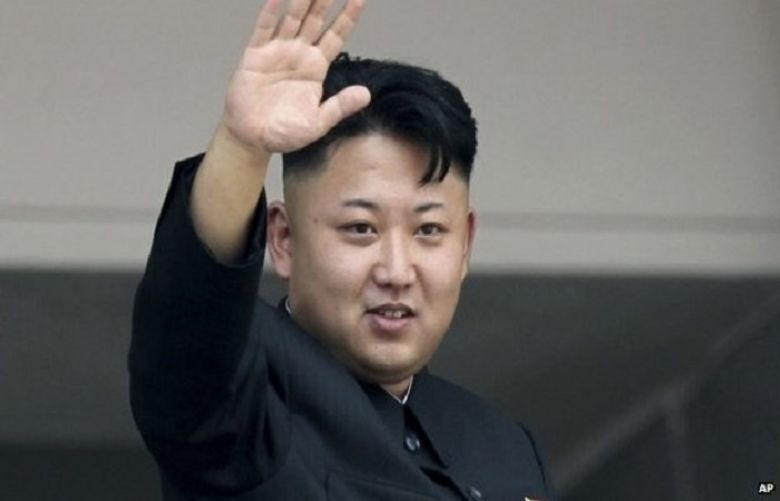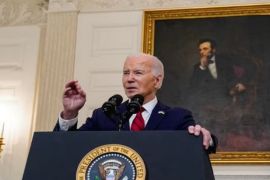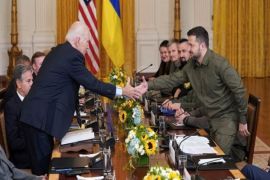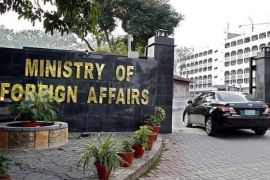North Korea has offered to hold a joint inquiry with the United States into a cyber-attack on Sony Pictures, strongly denying US claims that it is behind it.
The North's foreign ministry accused the US government of "spreading groundless allegations" and said a probe would refute the allegations.
The attack and subsequent threats against cinemas led Sony to cancel the release of The Interview, a satire.
The plot includes plans to assassinate North Korea's leader, Kim Jong-un.
The Interview had been due to open on Christmas Day. But Sony said it was considering releasing it "on a different platform".
The FBI said on Friday that the Pyongyang government was responsible for the cyber-attack last month, in which script details and private emails were leaked.
Dire warning
On Saturday, the North Korean foreign ministry said: "As the United States is spreading groundless allegations and slandering us, we propose a joint investigation with it into this incident."
"Without resorting to such tortures as were used by the US CIA, we have means to prove that this incident has nothing to do with us."
The statement said there would be "grave consequences" if the Americans rejected their inquiry proposal.
The denial by North Korea is unlikely to convince everyone. Defectors from the North said there was a unit of the military there called Bureau 121 which hacks the websites of foreign organisations.
In March last year hackers calling themselves the Dark Seoul Gang attacked the systems of South Korean banks and television stations. Experts say the methods were similar to the attack on Sony Pictures.
North Korea is an isolated country developing nuclear weapons and ruled by a despot so the increased irritation in Pyongyang on top of Sony's apparently new intention to release the controversial film, perhaps on the web, is causing heightened anxiety in the region.
On Friday US President Barack Obama criticised the cancellation, saying he wished Sony executives had spoken to him before cancelling the release.
"We cannot have a society in which some dictator someplace can start imposing censorship," he said, vowing to "respond" to the cyber-attack in a "manner that we choose".
Responding to the US president's comments, Sony Pictures chief executive and chairman Michael Lynton said the studio had not made an error in cancelling the release. "We have not given in, we have persevered," he told CNN.







